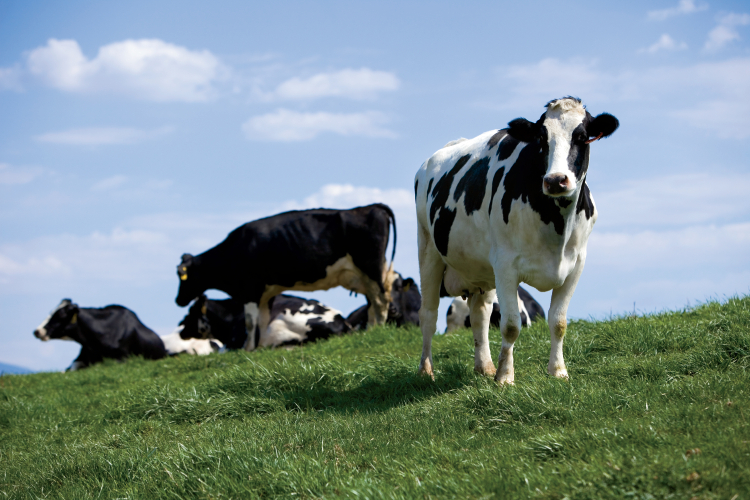Home > Georgia > Georgia Crops & Livestock > Georgia Dairy Farmers Go Green
Georgia Dairy Farmers Go Green
As a lifelong dairy farmer, Everett Williams of Madison excels at the art and science of dairy farm management. But for Williams, successfully running his dairy goes beyond ensuring healthy cattle and quality milk products. Whether he’s recycling water or testing the soil before adding fertilizer, he knows that managing a dairy farm also means managing its environmental impact.
“Farmers live in the same environment [that you do], so they don’t want to pollute their living environment, either,” Williams says.
Williams works with his wife, Carol, and his two sons to manage W Dairy LLC. The family milks approximately 1,300 cows each day, resulting in 3.3 million gallons of fluid milk each year. But dairy cows yield more than milk. A dairy cow can produce more than 100 pounds of manure and urine per day. As a result, dairy farmers view manure management as a top priority.
“A dairy cow requires a lot of nutrients to grow, to live and to produce milk,” Williams explains. “A cow also excretes a lot of nutrients in the form of manure. Most folks consider [manure] a liability, but I’ve always tried to look at it as an asset. If you can figure out ways to utilize those nutrients and recycle it, it’s a win-win for the environment and for the dairy producer.”
Williams employs a number of methods to reduce his farm’s impact on the environment, such as managing farm waste, recycling water, and reducing his reliance on electricity for heating water or cooling milk.
Dairy nutritionists help Williams to balance his dairy cows’ rations, so that the resulting waste contains less nitrogen, which can be damaging to the environment. By flushing his barns with recycled water, Williams can capture up to 90 percent of the sand he uses for bedding down the cows, as well as use the manure and wastewater as fertilizer for crops. Williams also uses heat exchange coolers and well water to cool down milk and heat water for cleaning pipes.
In 2011, Williams received the Georgia Governor’s Agricultural Environmental Stewardship Award for his work in manure solids separation and reducing waste water.
“It was a great honor to receive it,” he says. “It does make you feel better that someone took notice that you were trying to protect the environment and work with the environment.”




